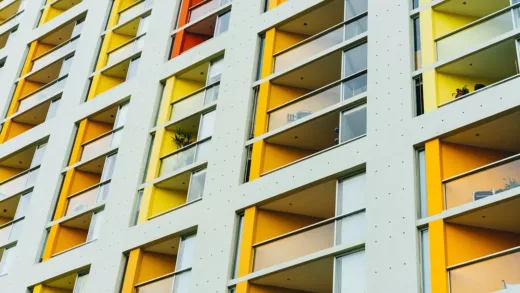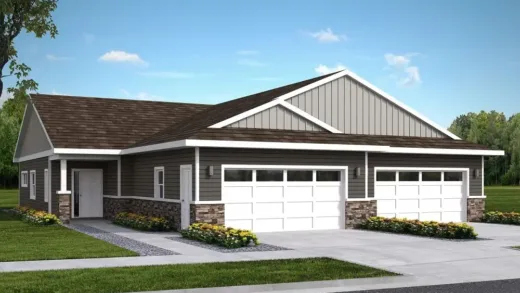Home inspections are a critical part of the real estate transaction process, especially for condominiums. They help buyers understand the condition of the property and can be a negotiating tool for adjustments in the purchase offer.
In this article, we’ll delve into what to expect during a condo inspection, common issues that might be discovered, and how to effectively use the inspection report in negotiations.
Contents
- What to Expect during a Condo Inspection
- Common Issues Found in Condo Inspections
- How to Use an Inspection Report for Counter Offers
- Conclusion
What to Expect during a Condo Inspection
During a condo inspection, buyers can expect a thorough examination of the unit and, in some cases, the building’s common areas. Here’s a breakdown of what typically happens:
- Scheduling the Inspection: The inspection is usually scheduled after the purchase offer is accepted but before the final agreement is signed. This timing allows buyers to make informed decisions and request repairs or negotiate terms if necessary.
- Inspection Duration: A typical condo inspection lasts between two to four hours. The inspector will evaluate both the interior of the unit and shared spaces like hallways and amenities.
- Areas Covered: Inspectors generally check plumbing, electrical systems, HVAC units, windows, doors, and overall structural integrity. For condos, they might also assess the condition of common walls and ceilings if accessible.
- Inspector’s Report: After the inspection, you will receive a detailed report highlighting the condition of various components of the condo. This report is essential for understanding potential issues and making informed decisions.
Common Issues Found in Condo Inspections
While each condo is unique, several common issues frequently arise during inspections. Being aware of these can help you better prepare for potential repairs or negotiations:
- Water Damage: Water damage can occur due to leaks in plumbing, poor drainage systems, or issues with the roof. Inspectors will look for signs of water stains, mold, or structural damage resulting from water intrusion.
- Electrical Problems: Electrical issues can include outdated wiring, insufficient electrical panels, or unsafe installations. Inspectors will check the functionality and safety of the electrical systems.
- HVAC System Condition: The heating, ventilation, and air conditioning systems are crucial for comfort. Inspectors assess their condition to ensure they are functioning efficiently and are properly maintained.
- Plumbing Issues: Common plumbing problems include leaks, slow drains, and water pressure issues. Inspectors will examine pipes, faucets, and water heaters to identify any potential concerns.
- Structural Integrity: Issues with structural elements like walls, ceilings, and floors can be costly. Inspectors will look for cracks, uneven surfaces, and other signs of structural damage.
- Common Area Maintenance: For condos, the inspection might also include common areas such as hallways and lobbies. Problems in these areas can affect the overall value and comfort of the condo.
How to Use an Inspection Report for Counter Offers
Once the inspection report is in hand, it becomes a valuable tool in the negotiation process. Here’s how to use it effectively:
- Review the Report Thoroughly: Go through the inspection report in detail. Highlight major issues that could impact your decision or require significant repairs. It’s often beneficial to consult with a contractor or specialist for a second opinion on the severity of the problems.
- Prioritize Issues: Focus on critical issues that affect safety, functionality, or structural integrity. Minor cosmetic issues might not warrant major negotiations, but significant problems should be addressed.
- Request Repairs or Credits: Use the findings to request specific repairs from the seller or ask for a reduction in the purchase price. You can either ask for repairs to be completed before closing or negotiate a credit to cover the cost of repairs.
- Be Reasonable: Ensure that your requests are reasonable and justified by the inspection findings. Overly demanding requests might jeopardize the deal, so it’s important to strike a balance between addressing concerns and moving forward.
- Document Negotiations: Keep detailed records of all negotiations and agreements related to the inspection report. This documentation will be useful for ensuring that agreed-upon repairs or credits are properly executed.
Conclusion
Home inspections are an invaluable part of purchasing a condominium. They offer peace of mind by providing a detailed assessment of the property’s condition and can uncover potential issues that might not be immediately apparent.
For buyers, this means having the information needed to make informed decisions, whether it’s negotiating repairs, adjusting the purchase price, or understanding ongoing maintenance needs.
For sellers, a pre-listing inspection can highlight issues that may be addressed before listing the property, potentially making the condo more attractive to buyers and facilitating a smoother transaction.
Overall, investing time and resources in a thorough condo inspection helps ensure that both parties enter the transaction with clear expectations and can contribute to a more successful and satisfactory real estate experience.











